
British explorer and filmmaker, Reza Pakravan is on a mission. He’s been busy giving a voice to the voiceless, in documenting the stories of people from the vast areas of the continent we’re told very little about. Highlighting the impact of outside forces on the lives of indigenous people.
This year Reza became the first person in modern history to have travelled the full length of the Sahel. A belt of land stretching across the southern boundary of the Sahara desert, spanning the width of Africa, from Senegal to Somalia. It’s a place home to some of the harshest conditions on the planet, where the effects of climate change are most felt and rebel uprisings are common.
It’s far from his first incredible journey, having cycled the Sahara (for which he holds a Guinness World Record) and the length of the planet, once travelling 4000km through the Amazon. But his adventures in the Sahel were his most perillous to date and stretched him both physically and mentally like never before.
Along the way, Reza was initiated by an animist priest in a bloody voodoo ceremony in Burkina Faso. Held at a gunpoint by human smugglers in Niger and travelled with migrants for part of their journey to Europe. He also dodged bullets in Khartoum, before being arrested and held in prison for four days in Darfur, after which he was kicked out of the region.
With a whole host of incredible stories from his travels, we sat down with Reza to dig deeper into his motivations for documenting these lesser-known lives, and find out more about what he got up to.
The MALESTROM: Tell us about how you got into this sort of adventure?
Reza Pakraven: It definitely wasn’t something that I made a decision overnight on. It was a long process at the beginning of my career trying to break into this world. I started going long distances cycling and breaking World Records and did some really extreme adventures. It was all to try and create some profile for myself.
But in the past few years, my career has taken a turn and I’m mainly spending my time documenting the impact of outside forces on the lives of indigenous people. So the start of my career was really hardcore mountain biking and extreme sports adventure and now it’s more focused towards the TV element. I went to film school to learn how to create visual content and started combining my two passions of adventure travel and making films.
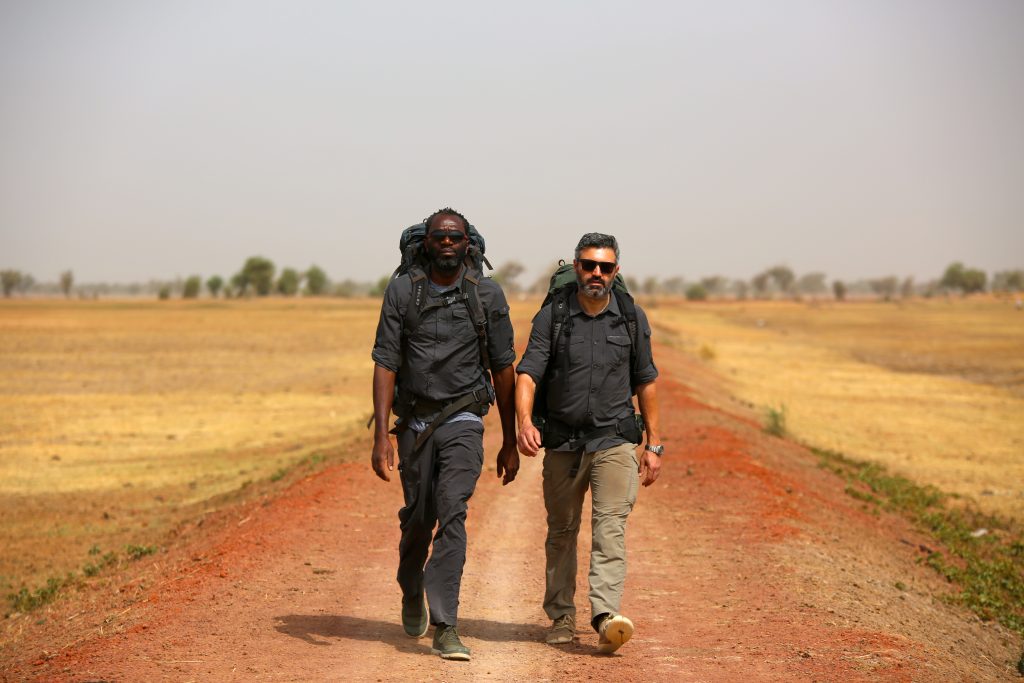
TM: Were you in an outdoor type of career initially?
RP: Actually, before I went to film school I was working in finance for about ten years. I had a really good salary and I was quite senior, and it wasn’t that I didn’t like it, I just wanted to go for my passion, something I really wanted to do. It took me a while to build up this reputation and experience in order to be relevant in what is a very challenging environment. Saying goodbye to certainty isn’t something that’s easy.
TM: You’re very much into documenting people and different social groups we see and hear little about in the West? Was that a conscious decision?
RP: Yes, exactly. Over the past few years, my focus has been filming and living with communities where perhaps we don’t know much about them. It’s also about understanding the outside forces people have no control over and how much they impact their lives.
For example, I travelled to the headwaters of the Amazon a few years ago to look at the impact of Narcos and illegal loggers on isolated tribes. I also travelled across Chad to document the impact of desertification on the lives of the tribes there. And my latest trip across the Sahel has been mainly about the indigenous people who called the Sahel their home and how the outside forces, mainly climate change and environmental issues, have impacted on them.
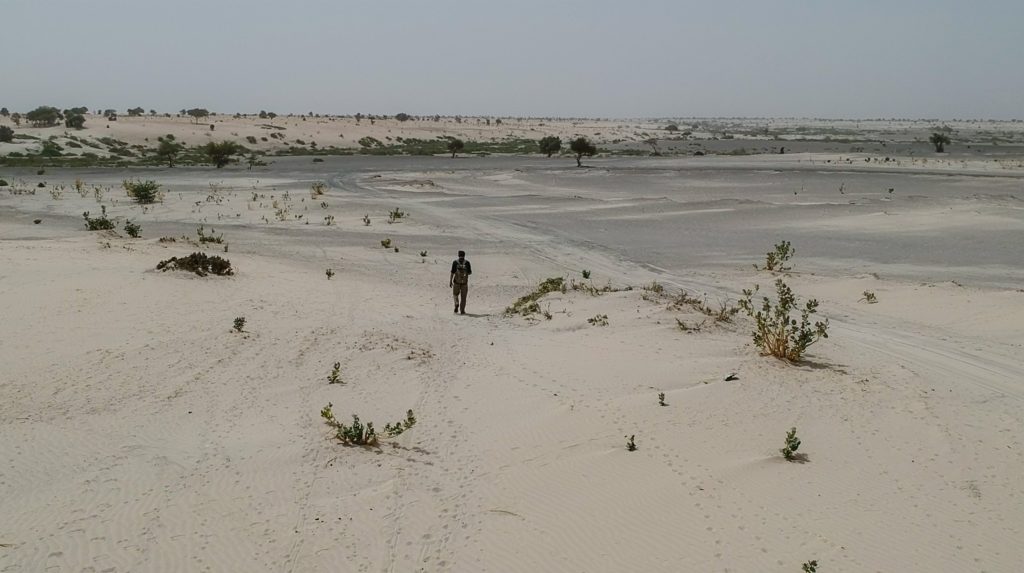
TM: From those last couple of trips you just mentioned what were your thoughts on how you’ve seen climate change effect lives?
RP: Out there the desert encroaches further every year, moving South. The families find it difficult to continue their lives. As we sit here in Europe and see the influx of migrants from sub-Saharan Africa to Europe, it costs so much money to put barricades in place to stop people coming into Europe, but the simple question that doesn’t get asked is, why do people want to come to Europe? Why is this migration happening?
The answer is desertification and climate change. Because those countries are really poor the powers that be don’t give a shit about what they’re doing as they’re not relevant, they don’t generate much money. But we have to deal with the aftermath of it. As the desert encroaches further south it kills pasture, the agricultural land, the cattle herders can’t feed their animals and without the grass, animals die. Farmers have to move somewhere else to feed their families.
All these things have an impact. Imagine if the UK tomorrow became partly covered in desert, you’d have to move somewhere else, because there would be nowhere to actually feed ourselves. So this was the main theme of my journey, to identify the impact of changes that have hit the hardest. And desertification has been responsible for the largest mass migration in recorded history.
Another effect of the climate change on the Sahel region has been to cause war and the rise of terrorism. As the desert encroaches further it pushes the herders in the north to the land of other farmers as they look for new pasture. The resources of those farmers are hugely under pressure and that causes a lot of conflict. Al-Qaida and the Islamic State are taking advantage of this conflict by providing weapons to them, potentially radicalising people and converting them to Sharia Islam.
TM: Tell us about your journey through the Sahel (from Senegal to Sudan), how did that come about?
RP: When I was in Chad, documenting the tribe called Wodaabe, I saw there was very little information about this region, it’s quite a neglected part of the world. Especially in English speaking parts of the world.
The more I started to research the area, the less I found, so as a filmmaker and explorer my job is to tell untold stories, providing people with an alternative narrative that they might hear in the mainstream media. They say that out here there’s war, there’s terrorism, insurgency, border closure, but no one really goes to the root of the problem. So I got out there and documented all the things we’re discussing, moving from story to story.
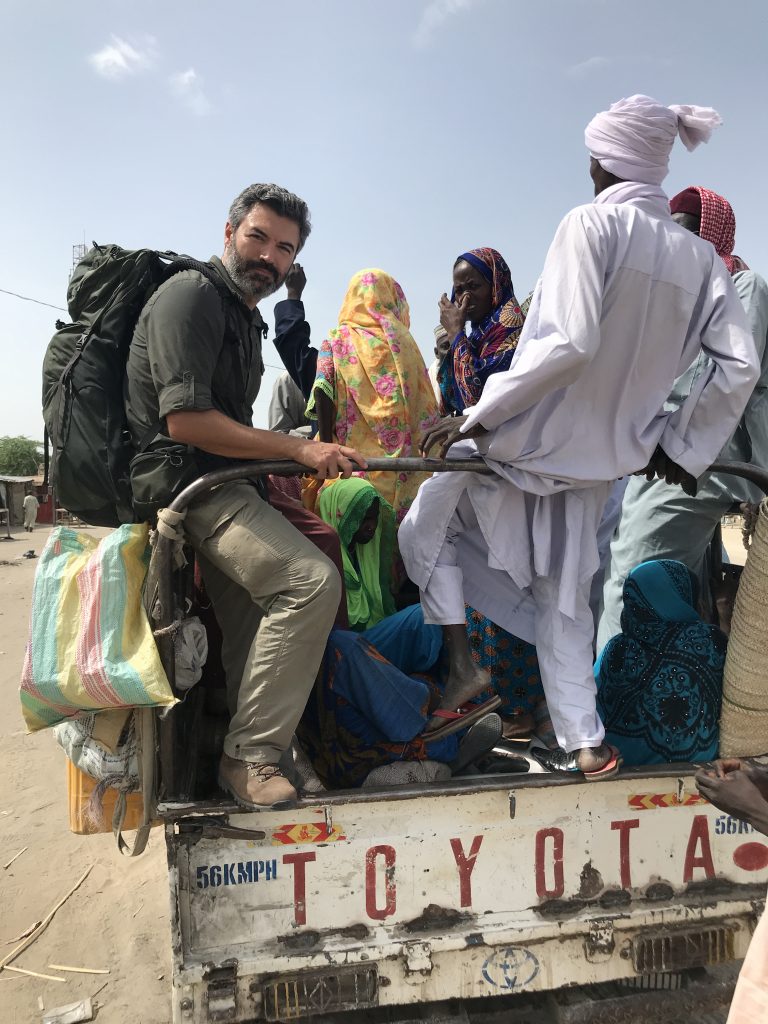
TM: Is the reality that the world’s a far less scary place than we’re told it is?
RP: It can go both ways. It is scary if you get held at gunpoint as I did in Niger, by a human smuggler. And it’s not a scary place if you’re getting hammered on the local gin with guides at 4 am in the morning in the city of Agadez (laughs). It can go both ways in a matter of days. One evening I’m drinking the local brew in a little bar in a purely Muslim area, two days later I’m being held at gunpoint by a smuggler in Niger.
TM: Tell us about that experience…
RP: We were documenting the route of migrants to Europe, so we got to Niamey, the capital, and then followed their journey to the city of Agadez, which is the starting point for the migrant’s journey to get to the platform where all the smugglers get together and smuggle people to Libya and from there enter a network to get them to Europe.
We were filming the starting point of that journey, every Monday they put them on a convoy and send them off to Libya cross the desert. So it was just before dark in this bare desert with convoy after convoy driving out. I was in front of the camera narrating and all of a sudden someone touched my shoulder. I looked back and saw a smuggler who was really angry with us about being there with cameras. So he pulled out his trusty AK-47 and said, “get out of here or else I’m going to kill you.” After which we quickly packed up and left.
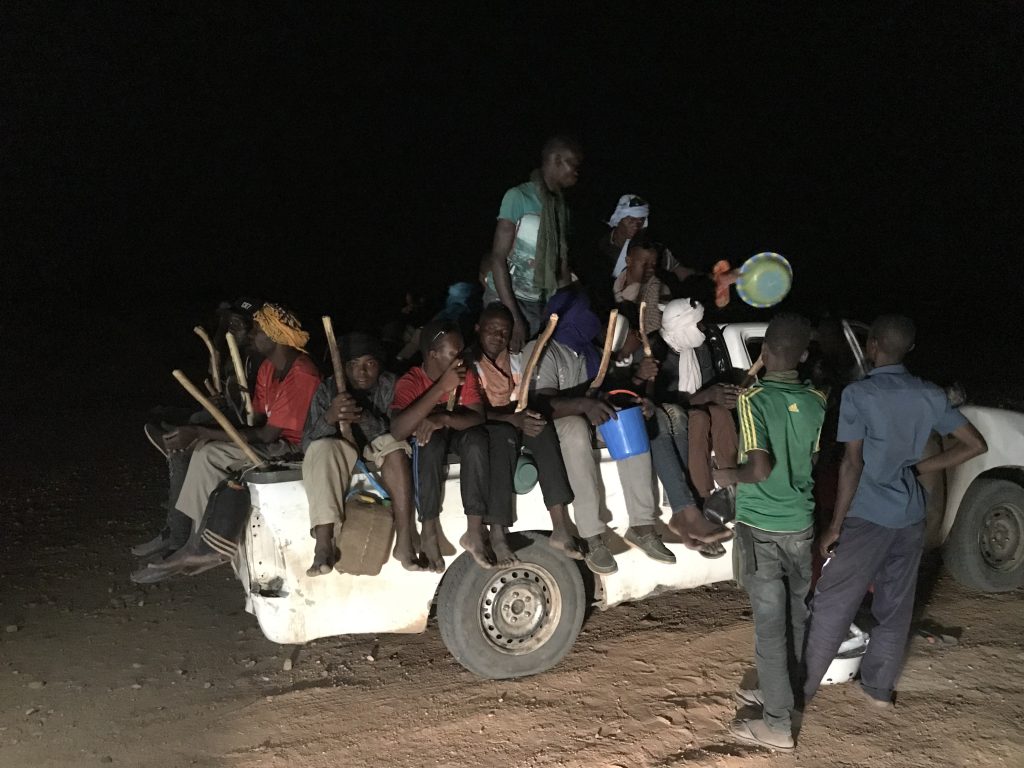
TM: Did you have security plans in place for situations like that?
RP: Yes, plenty. But they all go out of the window when you enter warzones. The region is so unstable that any minute things can change. At one point we got into a city right in the centre of the continent and then Boko Huram attacked and we had to escape from there.
In Darfur we were put into prison for four days because the country was kicking off. The Sudanese revolution happened and they thought we wanted to report on human rights abuse.
TM: The conditions must have been pretty uncomfortable in that jail?
RP: My cameraman had salmonella in the prison. The whole situation was horrendous. The place was disgusting, the stench from the toilet was up your nose all the time, it was horrible. Those four days were not fun! These are lows, at the same time you do have highs with the incredible places and humanity you experience.
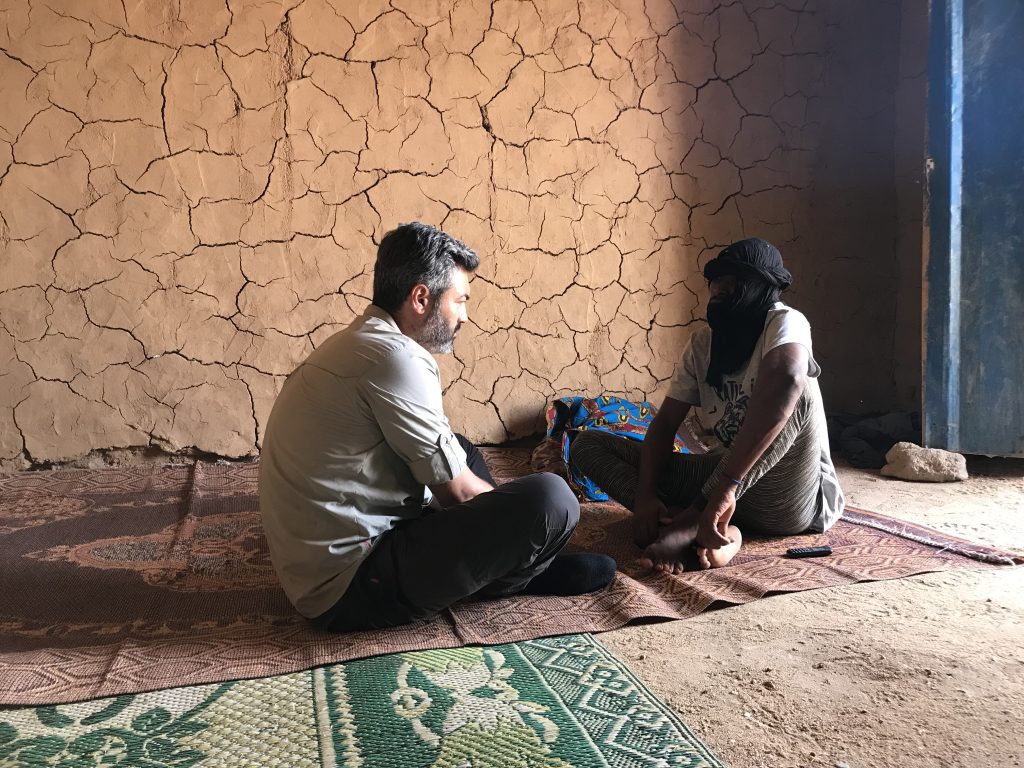
TM: Tell us about some of those high points. What sticks out in your memory?
RP: There were plenty. Obviously the incredible hospitality of whoever we met along the way. One exciting thing was an initiation ceremony in Burkina Faso, done by an animist priest. Animists are people who believe in spirits and organise and animate the Universe.
He initiated me in a bloody ceremony with a chicken getting sacrificed. These sort of things aren’t generally available to Westerners, but I really insisted and my guide managed to convince this priest to do a demonstration about his power.
I was standing there, a chicken got sacrificed, they put gunpowder and a hot ring in the palm of my hand, then poured chicken blood on it. I was screaming with pain because my hand was burning. I was there for 45 minutes, it was one of the craziest things I’ve ever encountered.
TM: Were you fully aware of what was going on when it was all happening?
RP: I actually got initiated twice, once in Burkina Faso, once in Sudan. In Sudan, I was completely out of it. They gave me a sort of elixir drink and that put me out completely. I also inhaled some of this smoke that they blew into my face, I was completely out.
TM: What was that all about?
RP: In the ceremony in Sudan I didn’t feel the problem. Basically, I was out, so when I was alert it didn’t really bother me that much, but later on, when I saw the footage of me smoking a cigarette for the first time in my life, puffing away on this fag, I was shocked. I could not believe I was actually smoking a cigarette, completely unaware. Whether that was the effect of the elixir or whatever black magic she was using, I was completely out.
TM: What was the experience all about?
RP: The ceremony is called Zar. She wanted to get the bad spirits out of my soul. So I went there to see this woman and she’s meant to mediate between me and the spirits. But I didn’t expect things to get to this stage where she’d put me out completely.
These ladies were sat around there playing drums, then they put a towel on my head and started blowing smoke towards my face, then gave me this aromatic drink, and after a while, I was dizzy and disorientated. Next thing I knew there was someone slapping my face and I came back to a state of alertness and as I say it was only later when I watched the footage I was like, wow, that’s scary! (laughs).
My curiosity about these sorts of things was I wanted to find out whether in Africa, where there are modern religions like Islam and Christianity, whether animism in a seriously Muslim place like Sudan was alive or not. What I came to realise is that people believe more in traditional religions than modern religions, which are more on the surface.
TM: We’d be interested to hear about your experience with the sexually liberated Wodaabe nomad tribe…
RP: I didn’t get involved, let’s be clear about that! I was just there to document. The Wodaabe are nomadic cattle herders, one of the last remaining nomadic cattle herders on the planet. They’re constantly on the move to set up new pastures and they live in these bunk beds which can be dismantled and then put together again in 15 minutes, so they’re really mobile. On the surface they’re Muslim, but contrary with their Islam is their sexual liberation.
The married woman can take any man, married or unmarried as a sexual partner. The man has the chance to refuse, but this is seldom exercised. Basically the women have all the power, they can do anything they want. But the condition is, if they decide to have a brief affair, or even leave their husband. The condition is they have to leave their children with their husband, he will be the guardian of the children. That’s the key.
Wodaabe men are extremely vain, they are like a bird of paradise, constantly looking after themselves and making sure they look beautiful in front of women. They are constantly brushing their teeth, making sure they’re nice and shiny and that their eyes are lit and beautiful.
You cannot find them without a mirror, a Wodaabe male without a mirror does not exist. They pluck their eyebrows, put on makeup. Every day for 45 minutes to an hour they spend in front of a mirror. It’s all about winning a lover even if she’s married to someone else. It’s fascinating.
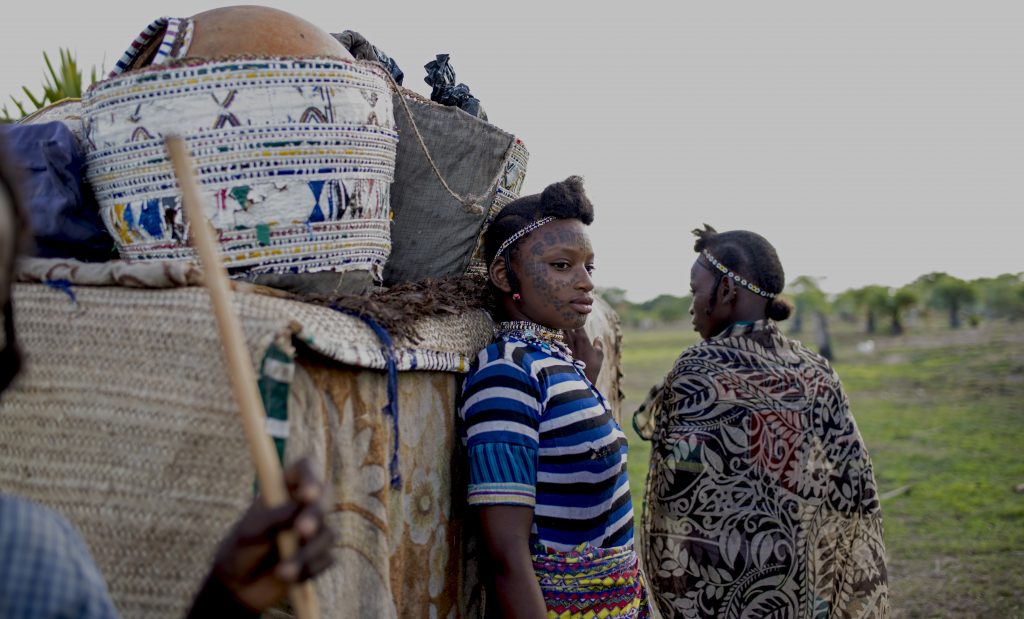
TM: Do you often go on your travels with your own preconceptions only to have them changed?
RP: All the time. I’ve travelled to over 80 countries around the world and I still have preconceptions about the places I’m going. Of course you do, it’s only natural. But the beauty of travel is the way what you’ve imagined about a place goes out of the window. You see something completely different if you want to see those differences. If you’re open to them.
TM: What plans do you have in place for more adventures?
RP: I’ve just had a newborn so my biggest expeditions at the moment are when I head to Kilburn High Street to get some nappies for him. I’ve just finished a television programme called World’s Most Dangerous Borders, which is related to this journey and I’m working on the second series right now, that’s in development, that will be in the danger zones of Asia.
Check out Reza’s website here:
https://www.rezapakravan.com/about-reza
And catch up on his latest adventures by following him on Twitter & Instagram.
Reza’s expedition across the Sahel was supported by the Scientific Exploration Society and Reza would like to thank sponsors Sun Chlorella, Craghoppers, Lestoff, Wildling, Tentsile, BodyMe and Eagle Creek.
Click the banner to share on Facebook


